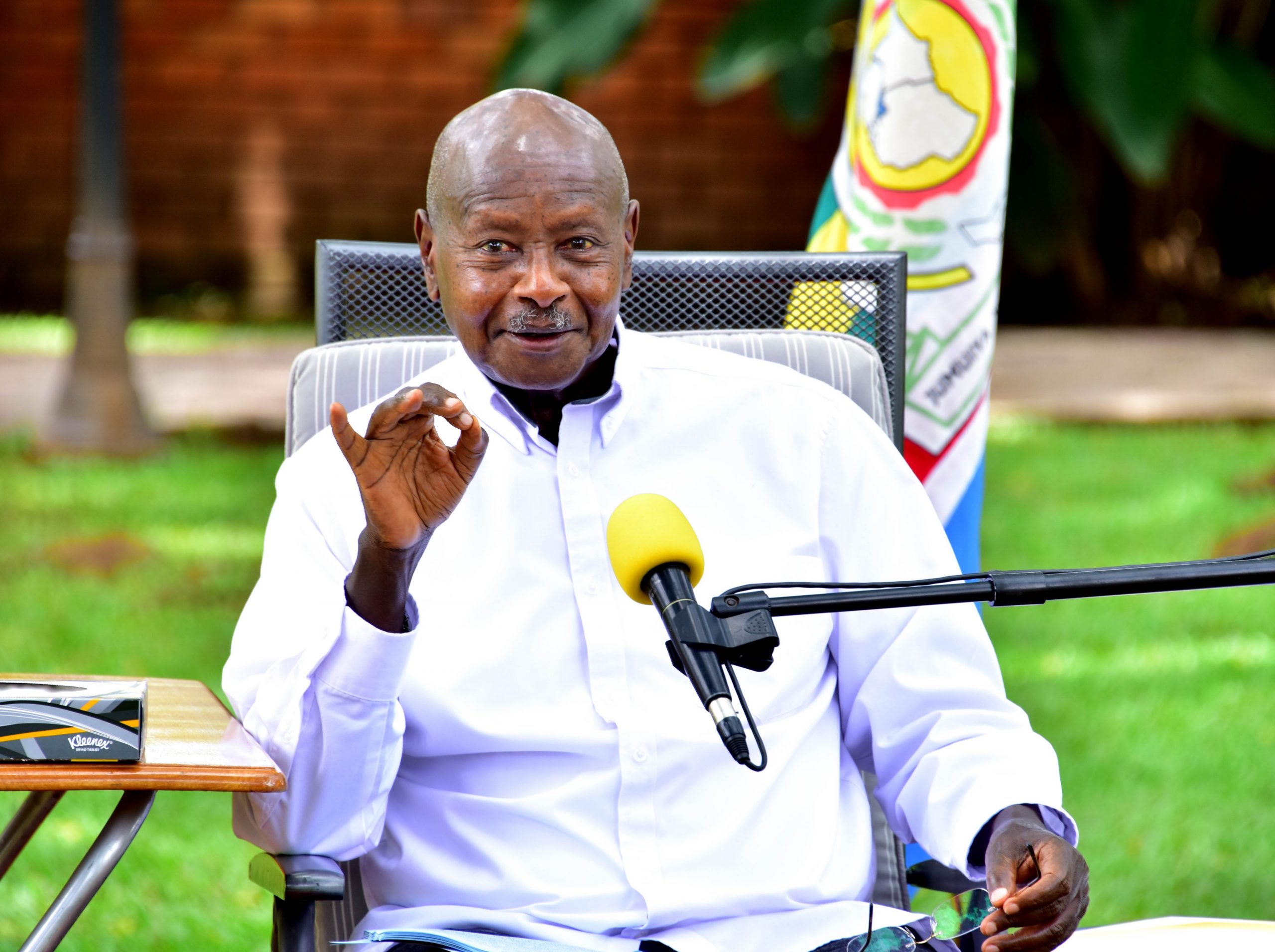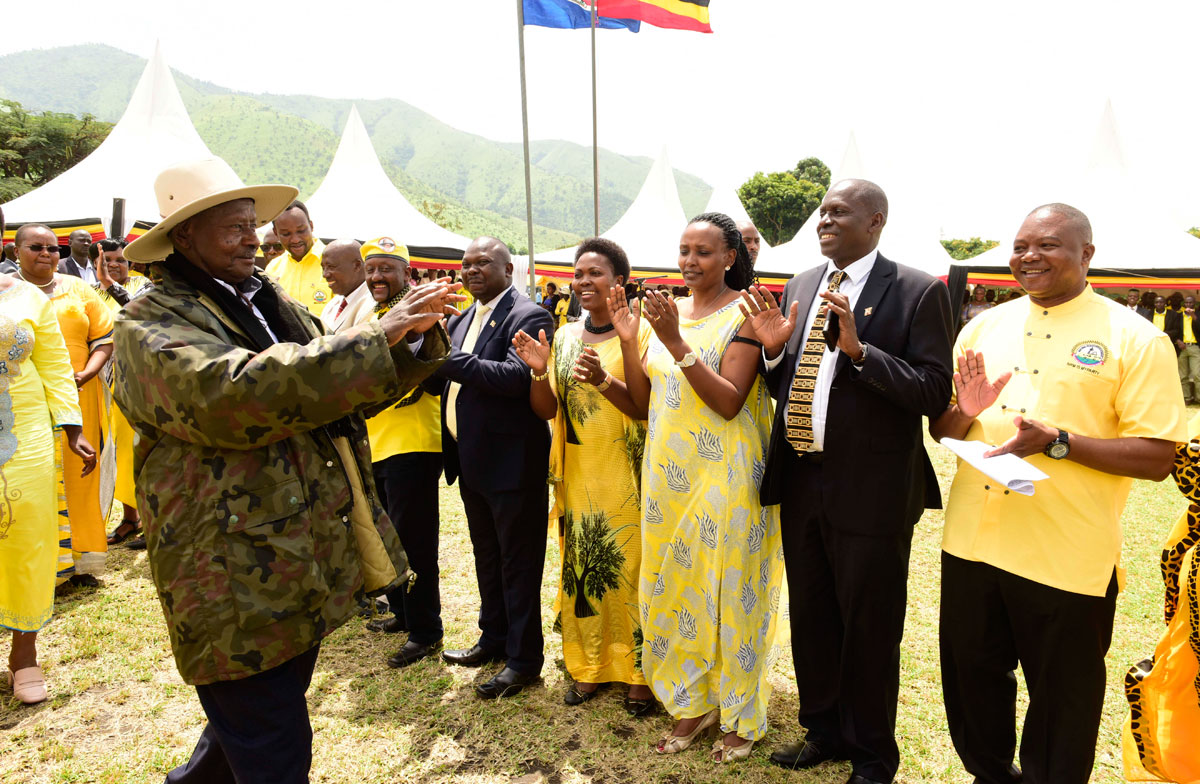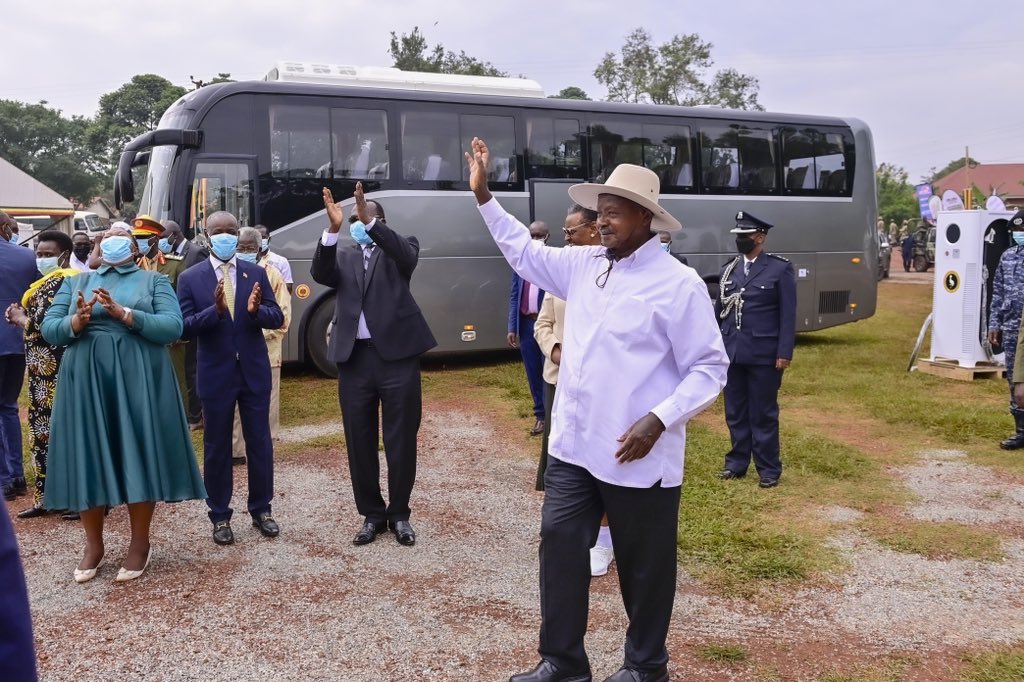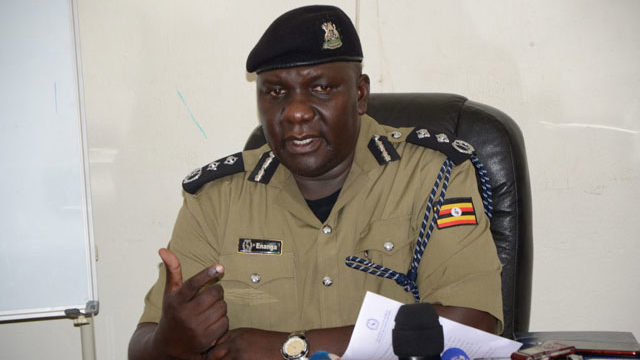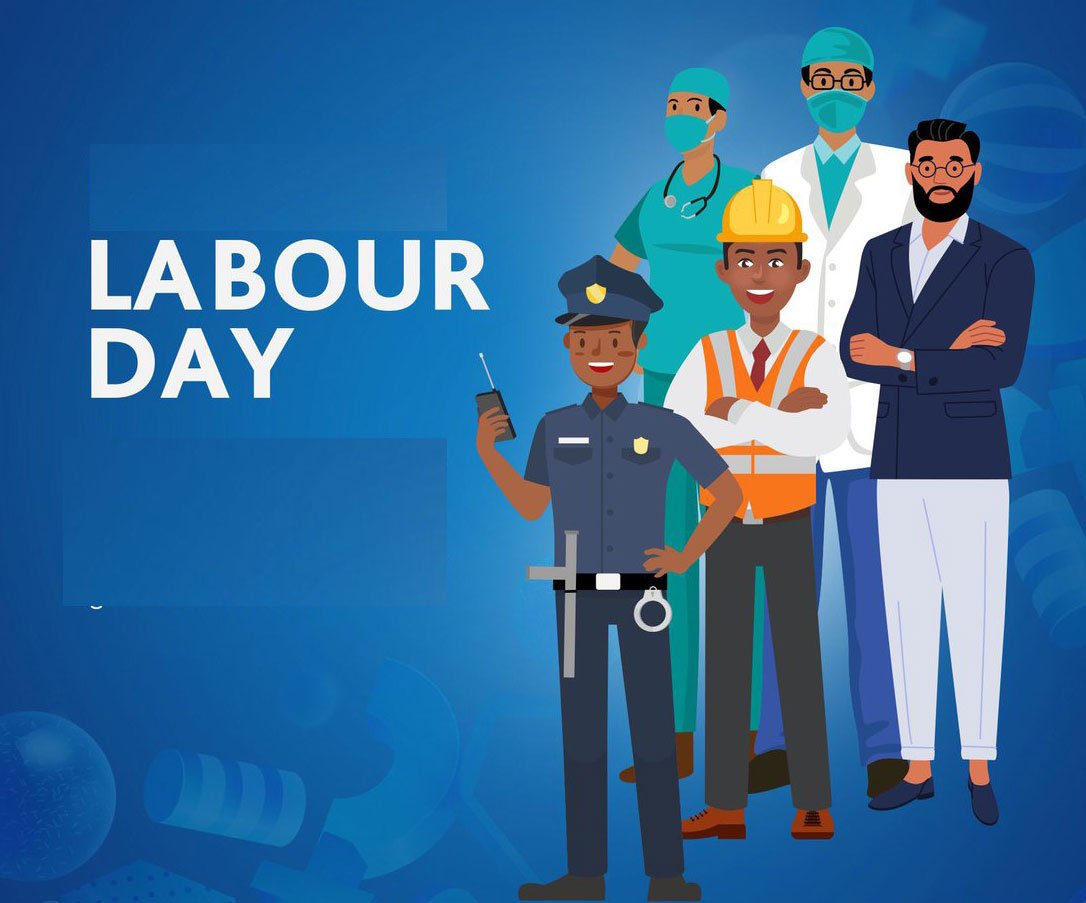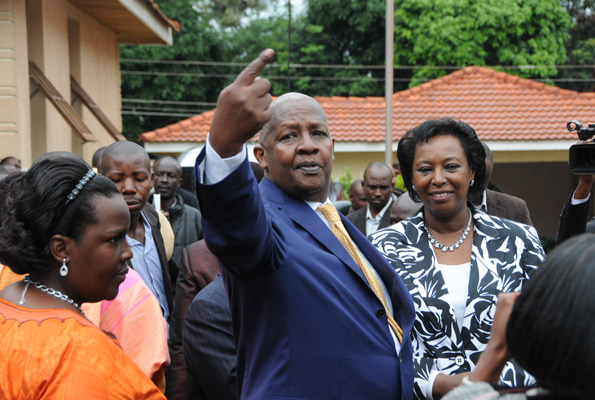Countrymen and Countrywomen,
Greetings and congratulations on the good success against the corona-virus although the battle is still going on.
Right from the beginning, I told you that it is possible to defeat this virus provided we are disciplined and we understand the way in which this virus spreads.
The virus spreads in, really, two ways. First of all, it spreads through the one with the virus, sneezing (kwetsyamura) or coughing (kukorora) near you and you breathe in, the virus from the air contaminated by his/her orwooya (the moisture that comes in peoples’ breathing particles of moisture ─ known as droplets by scientists ─ (the mist on a glass that you can see when it is in front of you and you breathe into it).
The mist you see forming on the glass surface is the rwooya or droplets. It is that jet of orwooya that carries the virus from the infected person to the victim.Â
This is, as I have said above, one way the virus spreads. The second way, is for the infected person, either through sneezing or coughing, or after blowing her/his nose (okwefuka), touches a surface (a table, a door handle, a book, etc.) and contaminates it with the virus.Â
These are the only ways this virus will spread that it why it is easy to defeat it, like we did with AIDS ─ by behaviour change.
Then, a potential victim touches the same surface, picks the virus and touches oneself in the three soft parts of the face: the eyes, the mouth and the nose.
Given the characteristics of this virus, it is my opinion that carelessness of the population, especially here in Uganda, is the main cause of the spread of this virus.
In Europe, the USA and Northern Asia, they may have more genuine challenges. First of all, they have very cold temperatures.Â
I am told that some of these viruses thrive in cold climates unlike bacteria that like warm conditions or those with vector hosts e.g. yellow fever.Â
Secondly, the way they live and travel, in shared residential blocks, using air-conditioning, sharing old peoples’ homes, sharing under-ground traveling systems with large numbers of people, makes them prone to this type of problem. In our conditions, it is much easier to control a virus of this type, provided we act correctly.
After analysis, one major way of defeating this virus, was to deny it large concentrations of people that it could infect.
Hence, most of the list of the 34 measures I announced on the 18th of March, the 21st of March and 30th of March, 2020.
The following were the measures:
1. Close all the Educational Institutions which account for 15 million young Ugandans;
2. Suspend communal prayers in Mosques, Churches or in Stadia and other open air venues;
3. Stop all public political rallies, cultural gatherings or conferences;
4. Banned Ugandans from moving to or through category one (I) countries that had had a large number of corona cases by that time;
5. Allow returning Ugandans provided they undergo mandatory quarantine, at their cost, for 14 days at a venue identified by the Ministry of Health;
6. Allow the non-agricultural gathering points e.g. factories, hotels, large plantations, markets, taxi-parks, etc to continue and follow the SOPs (Standard Operating Procedures) put out by the Ministry of Health;
7. Discourage the hexagonal, extravagant Ugandan-style weddings; Weddings allowed only for only a maximum of 7 people;
8. Burials could not be postponed, but should be for a maximum of 10 people (close family members);
9. Suspended weekly or monthly markets such as cattle auction markets (ebikomera); and obutare (food markets);
10. At that time, allowed the public transport systems of buses, mini-buses, taxis, boda-bodas, etc., to continue provided they were given SOPs;
11. Suspended all the discos, dances, bars, sports, music shows, cinemas and concerts;
12. Advised the public to maintain hygiene measures such as; not coughing or sneezing in public, no spitting, washing with soap and water or using sanitizers, regularly disinfecting surfaces such as tables, door handles, etc. and not touching your eyes, nose or mouth with contaminated and unwashed hands;
13. Advised the public on good nutrition to strengthen the body defence system;
14. Stopped all passengers coming into Uganda by air, land or water; this affected in-coming planes, buses, taxis or boats. Closed Entebbe International Airport and all other border points of entry except for Cargo airplanes and trucks;
15. Prohibited pedestrians from entry into the country from the neighbouring countries;
16. All public passenger transport vehicles are stopped. i.e. taxis, coasters, buses, passenger trains, tuk-tuks (tri-cycles) and bodabodas;
17. Only food sellers should remain in the markets; the non-food sellers should suspend their activities;
18. Private vehicles should continue but with only 3 people maximum per vehicle;
19. Ambulances, army vehicles, garbage collection vehicles, etc., would continue;
20. Banned the movement of all privately owned passenger vehicles;
21. Suspended the shopping arcades, hardware shops, which gather a lot of people to sell and buy non-food items. These were suspended for 14 days starting on the 1st of April, 2020;
22. Directed all the non-food shops (stores) to close. Only food stores, stores selling agricultural products, veterinary products, detergents and pharmaceuticals should remain open. Home deliveries should, instead, be encouraged;
23. The super-markets should remain open but with clear SOPs that restrict numbers that enter and leave the site at a given time and the handling of trolleys within the super-markets.
24. Established Food Markets in Kampala and the other towns should continue to be open while maintaining social distancing;
25. The sellers must not go home during the 14 days. They must arrange to stay nearby for that duration. It is that mixing that we want to freeze ─ between home, enroute and workplace.
26. Salons, Lodges and garages should also be shut for 14 days from the 1st of April, 2020.
27. Like the farms, factories should remain open. But the owners should arrange for the crucial employees to camp around the factory area for the 14 days. If they cannot do that, let them suspend production for 14 days;
28. Construction sites should continue if they can be able to encamp their workers for 14 days. Otherwise, they should suspend construction for the 14 days;
29. The essential services i.e., the medical, agriculture and veterinary, telecommunication, door-to-door delivery, financial institutions, all media, Private Security companies, cleaning services, garbage collection, fire-brigade, fuel stations, water departments and some KCCA staff should continue to operate;
30. Cargo transport by train, plane, lorry, pick-up, tuku-tukus, bodaboda and bicycle, within Uganda and between Uganda and the outside, must continue but only with minimum numbers, technically needed as follows: Cargo ─ Air-craft ─ only the crew; Lorry ─ not more than 3 persons i.e. driver, turn-boy plus one, etc., as will be directed by the Ministry of Transport, working with the National Task Force on the Coronavirus;
31. URA should also not close business on account of not paying taxes in these 14 days;
32. Gatherings of more than 5 persons are hereby prohibited;
33. Except for cargo planes, lorries, pick-ups and trains, starting with the 31st of March, 2020, at 1900 hours, there will be a curfew throughout the whole of Uganda up to 6:30am;
34. In order to deal with other health emergencies, permission can be sought from the RDC to use private transport to take a sick person to hospital. Additionally, government vehicles that do not belong to UPDF, Police, Prisons or UWA, will be pooled and deployed at the District Health Offices, including the divisions of Kampala, with their drivers, staying in tented compounds, ready to help in those health emergencies. Those vehicles will be under the command of the District Medical Officer;
35. Boda bodas should stop at 2:00pm.
These measures seem to have worked because we have, up to the 13th of April, 2020, tested 5,664 persons and only 54 have been found positive with the virus. Out of these 4,015 were returnees from abroad, 1,232 were those who interacted with the returnees, (known as contacts in the language of the Ministry of Health) and 402 were people who had not travelled or had not been in contact with the returnees, but were people who got worried and volunteered to be tested, known as the alert group by the Ministry of Health. The following were the tests, day by day, up to the 13th of April starting with the 21st of March, 2020 when we got the first case:
CUMULATIVE NUMBER OF COVID-19 SAMPLES TESTED IN UGANDA
| Date | Positive | Negative | Total |
| Before 21 March | 15 | ||
| 21-Mar | 1 | 10 | 11 |
| 22-Mar | 0 | 22 | 22 |
| 23-Mar | 8 | 27 | 35 |
| 24-Mar | 5 | 138 | 143 |
| 25-Mar | 0 | 104 | 104 |
| 26-Mar | 4 | 197 | 201 |
| 27-Mar | 5 | 222 | 227 |
| 28-Mar | 7 | 218 | 225 |
| 29-Mar | 3 | 203 | 206 |
| 30-Mar | 0 | 82 | 82 |
| 31-Mar | 11 | 165 | 176 |
| 1-Apr | 0 | 63 | 63 |
| 2-Apr | 1 | 301 | 302 |
| 3-Apr | 3 | 416 | 419 |
| 4-Apr | 0 | 398 | 398 |
| 5-Apr | 4 | 296 | 300 |
| 6-Apr | 0 | 231 | 231 |
| 7-Apr | 0 | 150 | 150 |
| 8-Apr | 1 | 213 | 214 |
| 9-Apr | 0 | 338 | 338 |
| 10-Apr | 0 | 439 | 439 |
| 11-Apr | 0 | 555 | 555 |
| 12-Apr | 1 | 168 | 169 |
| 13-Apr | 0 | 639 | 639 |
| 5649 |
In addition to our domestic tests of the 5,664, the other day our people started testing the inter-states cargo transport drivers. They tested 372 drivers, entering through the Malaba entry point and they were found negative.
Below, is therefore, the curve of Uganda’s progression in terms of discovered infections, day by day.  During these 3 weeks, 18th March, to 13th April,  when we have been working on blocking the importation of the virus from outside by closing the Airports, quarantining the returnees, fishing out the returnees that had melted in the community, testing them as well, testing their contacts (the people they interacted with).Â
We are still following up the 18,000 people that entered the country through the Airport between the 7th and the 22nd of March, 2020.Â
There are, however, additional danger points as follows: the land borders with the East and Central African countries; the cargo truck drivers and crews of trains; the air-craft crew ─ members for cargo planes; and the health workers treating the corona-virus people.
With the infiltrations from the neighbouring countries, we are relying on two elements: the LC Is and the village members who should not allow their villages to be polluted with this disease by allowing strangers to hide among them and the corrupt immigration and police personnel that, in exchange for bribery, allow strangers to enter Uganda illegally.
Security is going to strengthen the counter-intelligence efforts to eliminate corruption in our forces and anybody found guilty will face the charge of murder or attempted murder. It will not be nice for them.
On the issue of the truck crews ─ the driver and two others ─ they will be tested at the border but they do not have to wait for the test results.
They can continue with their journey and the outcome of the test will be communicated to them later and further management will follow as is necessary.
Within the country, the truck drivers, whether transiting or destined to Uganda, will only stop at designated points in the country and nowhere else.Â
The crews of the cargo planes that fly into the country will be accommodated in designated hotels. The health workers dealing with the corona-virus patients will be given the necessary masks (surgical, N-95, etc.) and the other protective gear. Many of these will be manufactured here. We shall only import a few.Â
Our scientists are even inventing new products for testing. The Ugandan factories have resolved the issue of alcohol based sanitizers.
Given the successes we have achieved and also the challenges that remain, the Government has decided to keep the stay-home decision for another 21 days, starting tomorrow, the 15th of April, 2020 up to the 5th of May, 2020.Â
This is in order to give ourselves more time to study the situation for a longer period. Therefore, all the measures previously announced, will stay in place for another 21 days.
This additional 21 days, will definitely, help us to defeat this virus decisively, or if not defeated totally, to prepare better as to how to cope with it.
We are, for instance, encouraging the local industries to produce the masks so that we have them on a large-scale. They seem to help one not to spread the virus if managed properly. What happens to public transport? Do we encourage the bicycles more? We are now using the testing of the particles of the virus. It is also quite expensive. Each test costs US$65 for PCR (this includes the reagents and sample collection materials).
Our scientists are developing cheaper tests, that could go for US$25 per test and also the test for the human anti-bodies reaction even to an older defeated invasion by the virus.
It will help us to know that that one had previously been attacked by the virus but one defeated it and is now immune.Â
This is good for three reasons. First of all, those who defeat the virus become a fire-break (okuchwerera) that stops the virus from spreading because they are now immune.Â
Secondly, we study their contacts to see how they are. Thirdly, they help us in studying how to defeat this virus.Â
Even their plasma, I am told by some doctors, provided they do not have other diseases can be used to treat the sick corona-virus victims.
One of the problems of this virus seems to be people who get infected but show no signs. The medical language is that they are asymptomatic.
They are not sick themselves but can infect others for, at least, 34 days.
The infected people that have the virus but do not show the signs, yet they can spread it to others if they are too near or through contaminating the surfaces. That is why testing more people would be useful.
We are now only testing those who came from outside between the 7th of March and the 22nd March, 2020, the people that interacted with them that are called contacts, the ones that fall sick and show signs or the ones that got worried and request to be tested.
If we did not have the problem of the quiet careers, the asymptomatic ones, we could say that since the ones that showed signs are within the 54 that proved positive and we have been treating are now known, there are no other people infected among the Ugandans and we would, then, concentrate on the travellers, the ones coming from outside.Â
However, we cannot say that now because there could be those silent careers.
Therefore, the extra 21 days cannot be a mistake. After those 21 days, the virus will either be totally defeated or we shall be better prepared.
Therefore, I would like to appeal to the Ugandans to observe the prohibitions already announced and summarized above.
Stay at home except those carrying cargo, including food; the youth stop going into the trading centres to loiter.Â
Be in the gardens with your parents. This is the season for planting. What are you doing in the trading centres?
The other day, we punished soldiers that caned people, kiboko, or beat people in any other way. This was because they violated the Standing Orders of Policing.
You only use violence in self-defence. Nobody has a right to assault a member of the security forces.Â
If you do that, the member of the security forces has a right to use reasonable force to subdue you and arrest you. Throwing stones at members of the security forces is very dangerous.
Stones, thrown at the rural based security forces that do not have anti-riot equipment such as shields and helmets, can result in the death of a member of the security forces as happened to AIP John Bosco Ariong of the Police, here in Kampala.
Therefore, in self-defence, those forces will use live fire to disable the stone throwers. The rural Police Forces do not have rubber bullets, etc.
If the anti-riot Police that are well equipped are available, they may, initially, use softer methods.Â
The bottom line, however, is do not endanger the lives of the security forces that are carrying out lawful orders.
We shall defeat this virus by protecting our people from its rapid spread. We do not want what happened in some other countries to happen here.Â
Hence, the shut-down. However, even in the shut-down, there are activities that must continue such as: work on the farms to produce crops for food and cash; work in the factories to produce factory goods, provided the factories camp their workers nearby, if not in the factory grounds, nearby schools can be used; cargo transport by trains, planes, lorries, pick-ups and boda-bodas ─ however, the bodabodas must only operate up to 2pm because sometimes criminals use them to do evil things; other essential services such as: provision of utilities (electricity, water, telecommunication), medical, veterinary, agricultural inputs (seeds, chemicals, etc.), media, financial institutions, door-to-door delivery, cleaning services, garbage collection, fuel stations, etc., as is constantly clarified by the National Task Force.Â
With the markets, we only allowed the food ones to be the ones to continue provided the sellers undertake to stay in or near the markets because it was the commuting to and from work that was the problem.Â
That is how the disease was spreading. I salute the market woman that agreed to stay in the market. I have already ordered Dr. Achieng to give them treated anti-mosquito nets and polythene sheeting to protect them from the rain.Â
The KCCA and other urban authorities should also fumigate the areas near those markets to kill the mosquitoes.Â
They should also fumigate areas where the cargo vehicle crews will be camping at the different stop-points.Â
If you do not have mosquitoes, drivers can spread ground sheets under their lorries and sleep, instead of trying to stay in hotel rooms where they can infect one another, etc.
Finally, on the issue of food support. This food support is for, mainly, the urban groups that were depending on daily earnings from the different activities that were suspended in this fight against the virus.
These activities include the following: working in hair salons; in bars, night clubs; garages, selling non-food items in markets, etc.
The qualifications for these food grants are two: you were depending on a daily earning ─ reja-reja ─ that was suspended by the Government anti-corona measures; and you do not grow your own food.Â
Therefore, those that do not fall in these categories, should not clamor for food grants. Your Government needs to fund durable things like your roads, support agriculture, support UDB to your Ugandan investors that need to produce the products that we have been getting from abroad, etc.
We should, therefore, not fraudulently clamor for free food when we do not fall in these two categories.
Let the Government spend money on production and not just consumption.
I thank the majority of Ugandans for co-operating and supporting the tough measures we have been announcing eversince the 18th of March, 2020. You have seen how much damage this virus has caused in other countries. We should not allow that to happen here.
Apart from preventing the spread of the virus, we have, of course, also successfully been treating all the 54 confirmed positive cases at Entebbe and Mulago.
Seven (7) of those people were discharged recently from Entebbe hospital another 8 are due for discharge from Mulago hospital today or tomorrow.
The patient at Adjumani hospital will be discharged today as well. I salute our doctors and health workers for a commendable work.Â
The other day, I spoke by phone to the Prime Minister of India, H.E. Narendra Modi. India will supply us with the hydroxy-choloroquine as well as the raw-materials to make it here.Â
This medicine helps the red-cells with the capacity to supply oxygen to the body in the fight against the virus.  It also reduces the capacity of the virus to replicate.Â
It is not just the hydroxy- choloroquine that we shall produce locally, as already said, all the other protective equipment (masks, scrub-suits, goggles, protective glass, gloves, etc.), will be produced here.Â
I was clearing with H.E. Modi about the machine-tools for some efforts. I thank him for his co-operation.Â
I am determined, as always, to ensure that Uganda gets out of the posture of being an importing country for products that can be made here.
Back to our doctors and health workers, once again, I salute them for their professionalism. They have been able to heal these initial corona-virus cases and stay free of the virus themselves.
I am told some health workers have not yet got stickers for their vehicles. General Katumba will solve that.
You have heard how much damage that virus has caused among the health workers in other countries. Praised be the Lord.
By the 5th of May, 2020, we shall have a clear picture and lifting of the restrictions will start systematically as will be announced at the night within the 21 days.
I thank you and wish you good luck.
14th April, 2020 – Nakasero


